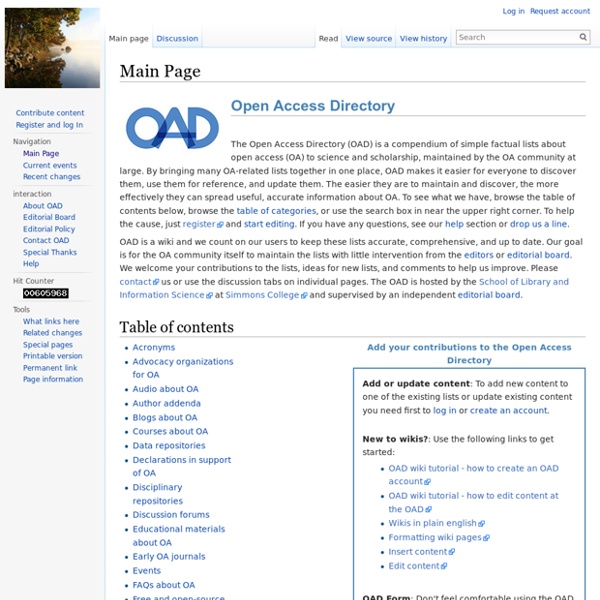



Home Page - Directory of Open Access Repositories Free ebooks by Project Gutenberg Internet Archive: Digital Library of Free Books, Movies, Music & Wayback Machine Open Translation Project | Initiatives Meet some of the world’s most colorful idioms “Cowness hasn’t gone, buffaloness intervened” … and other idioms from around the world, chosen and explained by 47 different TED Translators and illustrated by Masahito Leo Takeuchi. Translation by collaboration: How TEDxSapporo translators work together to find the perfect word Ayana Ishiyama always thought she wanted to be a journalist. Can I help translate TEDx Talks if I only speak English? Camille Martinez is a native English speaker who’s fluent in Spanish. 40 brilliant idioms that simply can’t be translated literally It’s a piece of cake. Meet the family that’s translated 2,000 talks The Open Translation Project has a global family of over 18,000 volunteers. How to learn a new language: 7 secrets from TED Translators By Krystian Aparta They say that children learn languages the best. How translation amplifies ideas: TED speakers show appreciation Translation as language preservation: Why a Kazakh journalist is translating TED Talks
Open Journal Systems | Public Knowledge Project Open Journal Systems Open Journal Systems (OJS) is an open source software application for managing and publishing scholarly journals. Originally developed and released by PKP in 2001 to improve access to research, it is the most widely used open source journal publishing platform in existence, with over 10,000 journals using it worldwide. OJS Features OJS is a comprehensive tool for managing your entire submission and editorial workflow and publishing your articles and issues online. Responsive reader front-end with a selection of free themes or designsFlexible and configurable editorial workflowOnline submission and management of all contentSubscription module with delayed open access optionsIntegrated with scholarly publishing services such as Crossref, ORCiD, and DOAJRecommended by Google Scholar for ease of indexing and discoverabilityLocally installed and controlledCommunity-led and supportedMultilingual and translated into over 30 languagesExtensive user guides and training videos